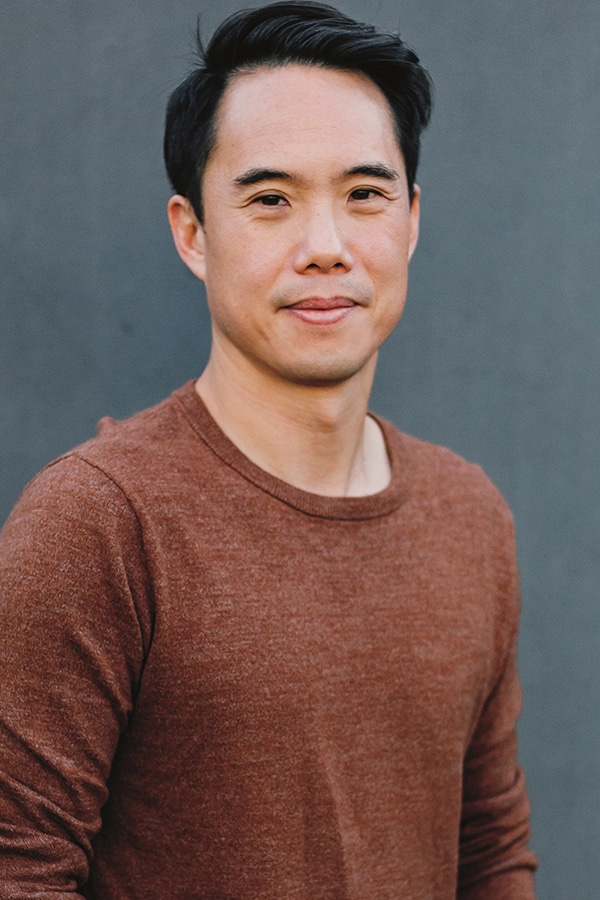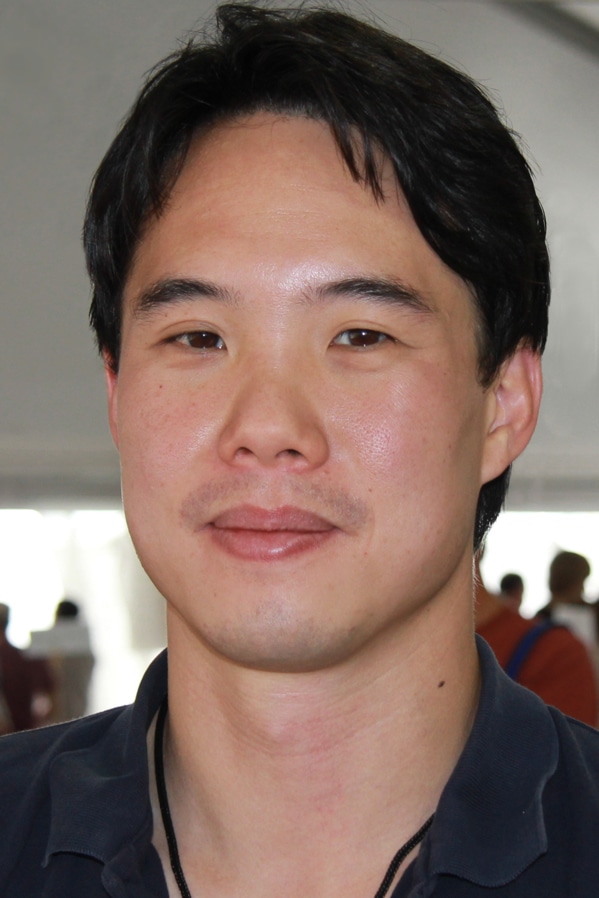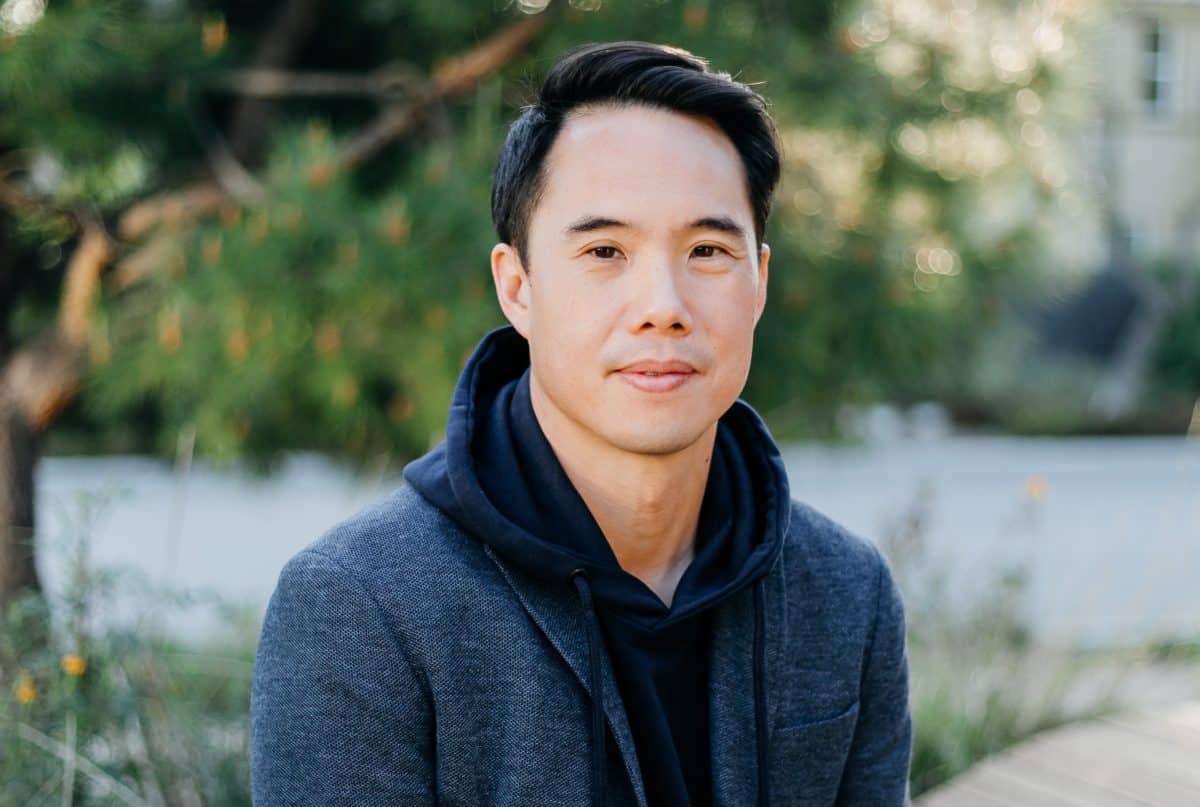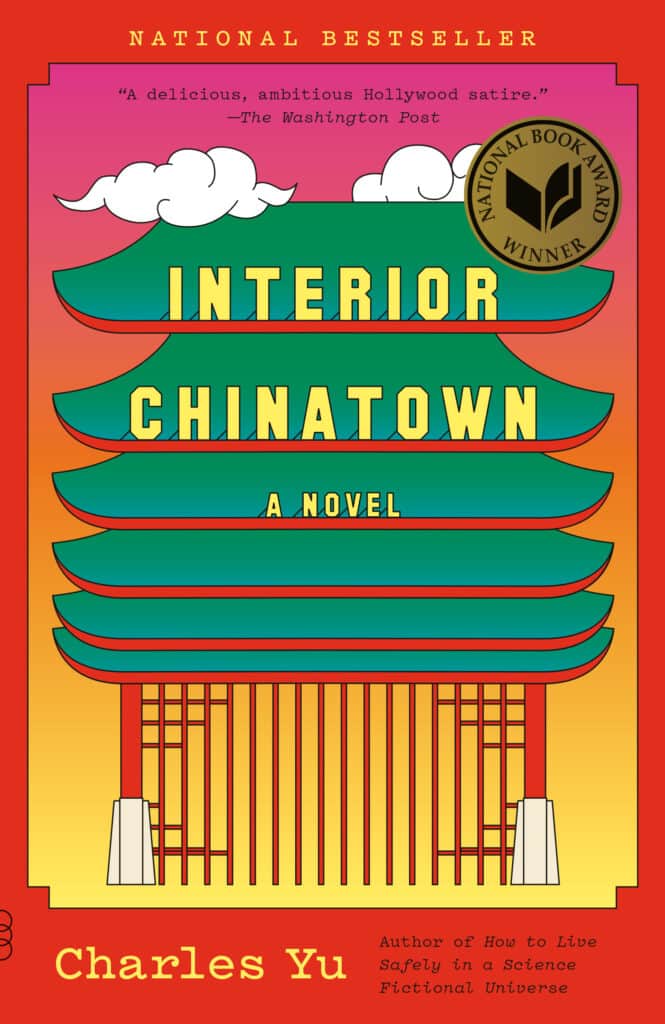
On February 29, 2024, Literary Arts will host Charles Yu as part of our 2023–24 season of Portland Arts & Lectures.
CHARLES YU is the author of four books, including Interior Chinatown (the winner of the 2020 National Book Award for fiction), and the novel How to Live Safely in a Science Fictional Universe (a New York Times Notable Book and a Time magazine best book of the year). He received the National Book Foundation’s 5 Under 35 Award and was nominated for two Writers Guild of America Awards for his work on the HBO series, Westworld. He has also written for shows on FX, AMC, and HBO. His fiction and nonfiction have appeared in The New Yorker, The New York Times, The Wall Street Journal, and Wired, among other publications. Together with TaiwaneseAmerican.org, he established the Betty L. Yu and Jin C. Yu Writing Prizes, in honor of his parents.
What sort of schedule does an award-winning novelist and TV writer keep?
Read about Yu’s writing practice, the best writer’s advice he’s ever gotten, and more in this PBS interview.

“If you were to watch me on time-lapse (very boring), you might say wow, now there is a guy who is wasting a lot of time. You might be right. A lot of days it feels that way. But I also believe at least some of that non-writing time is productive. What I do is try to frame a question or idea in a useful or interesting way, set my subconscious to work on it, and then check back later to see if there’s been progress.”

From Watchmen to Animal Farm, find out what Charles Yu loves to read.
“Often when I’m working on something, I’ll want to read something totally different than what I am thinking about, to give my brain a break (and/or give my subconscious a chance to keep cranking). It also gives me an excuse to go book shopping and buy something that I otherwise wouldn’t allow myself. Some big new hardcover about corporate malfeasance. I love a good business failure book. Maybe because I worked as a corporate lawyer or in corporations for half my career.”
Since the National Book Award winning novel Interior Chinatown uses the form of a screenplay, it’s quite fitting that it is being adapted into a tv show for Hulu.
In this interview with John Freeman and Bonnie Tsui, Yu talks about the new show, his inspirations, and more.

“I feel like I had to bend reality or almost create reality because I saw so few models for my own reality. I had to almost write science fiction because I didn’t feel like Asians were part of the reality in what I was reading and watching. There’s a filter on American TV and film in the eighties and nineties where somehow it magically filters out all the Asians that were 5% of the US, and a much higher percentage at universities, in hospitals, in certain… Certain contexts, there should be way more Asians. Somehow they magically don’t exist in those contexts until about 10 years ago. Then Asians start making it through. But what that does, I think, is distorts.”
Find out more about Yu and his career”
Charles Yu was born in Los Angeles in 1976 to Taiwanese parents. He has been an avid reader from a young age, in love not just with the written word, but also with visual stories like The Twilight Zone. He has said that reading Isaac Asimov’s novel Foundation left a lasting impact: “That was such a fully realized universe, with its own made-up science, you know? And it probably stayed in my head as like, you can do this. You can make up a universe.”
Before he began publishing his creative writing or calling himself a writer, Yu went an entirely different direction academically and professionally. He earned a BS in biology from the University of California, Berkeley, and a JD from Columbia University. During his science and law education, he encountered the works of authors like Kurt Vonnegut, George Saunders, and A. M. Homes, which inspired him to try his hand at short story writing. He attempted to publish his work after graduation, receiving many fiction rejections; meanwhile, he practiced law at different firms and worked as in-house counsel for different tech companies. Yu doesn’t see his legal work as completely unrelated to the career of an author, though: “Being taught how to think like a lawyer gave me an attention to precision in language and in thought that’s really helpful.”
Yu began to receive acceptances from literary journals for his creative work, and his writing career accelerated even more when a literary agent found one of his stories. His first fiction collection, Third Class Superhero, was published in 2006, and people took notice, including Pulitzer Prize winner Richard Powers, who selected Yu for a National Book Foundation Five Under 35 award in 2007. A Kirkus starred review said of the debut, “Within these 11 stories, Yu uses language to suggest what language cannot express… smart, engaging and often deadpan funny.”
Yu continued working as a lawyer, while also finishing his first novel, How to Live Safely in a Science Fictional Universe (2010). Reviewers noted the novel’s playful approach to genre, form, and story, with NPR saying, “Yu grafts the laws of theoretical physics onto the yearnings of the human heart so thoroughly and deftly that the book’s technical language and mathematical proofs take on a sense of urgency.” Two years later, he released another critically acclaimed collection of short stories, Sorry Please Thank You (2012).
He had published three books, all met with critical interest, but Yu’s next creative leap would allow him to leave his day job for full-time writing. Executives at HBO had enjoyed his prose and brought him on to write for the successful Westworld series in 2014. Yu has since worked on television shows for FX, AMC, and other networks.
Hollywood became not just the industry he was working in, but also a place for reflection, and eventually, a large inspiration for his next novel, Interior Chinatown (2020). Discussing the book with The New York Times, he said, “The elevator pitch for the book became, ‘You know that “Law & Order” episode we’ve all seen that’s set in Chinatown?’ I want to know about the life of that guy in the background—the one who’s unloading the van and who got one line.”
A witty and touching look at assimilation, Hollywood, representation, and more, Interior Chinatown proved to be a critical and commercial success for Yu. The novel won the 2020 National Book Foundation Award for Fiction, and was longlisted for the Andrew Carnegie Medal, along with other accolades. The Washington Post called it “one of the funniest books of the year,” saying, “while sticking to the screenplay form, Yu bends it enough to go deeper… it’s mind-bending storytelling, not easy to pull off. Yu does it with panache.”
In honor of his parents, Yu established The Betty L. Yu and Jin C. Yu Creative Writing Prizes in 2021 with TaiwaneseAmerican.org to “recognize creative literary work by Taiwanese American high school and college students, and to foster discussion and community around such work.” He was also elected to the National Book Foundation Board of Directors in 2023. Today, Yu lives with his wife and two children in southern California.
“The book is, in so many ways, about roles in various forms. And so it’s about generic Asian man or kung fu guy, or attractive detective, but it’s also about being a son to an aging parent, about learning to switch between being the child, and then being the caretaker, and about playing roles to preserve the somewhat delicate fabric of the relationship. As a parent ages, how can you take care of your parents while still giving them their dignity or while still preserving the structure that that’s always been there, that they were the person who raised you. And so as Willis learns and grows, he switches from a young man to a middle aged man, I think. And this book took me so long to write that actually I kind of made that switch myself.”


